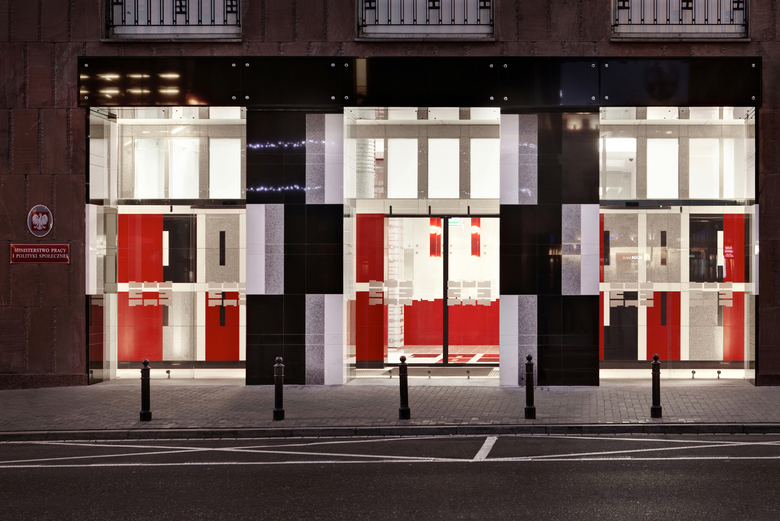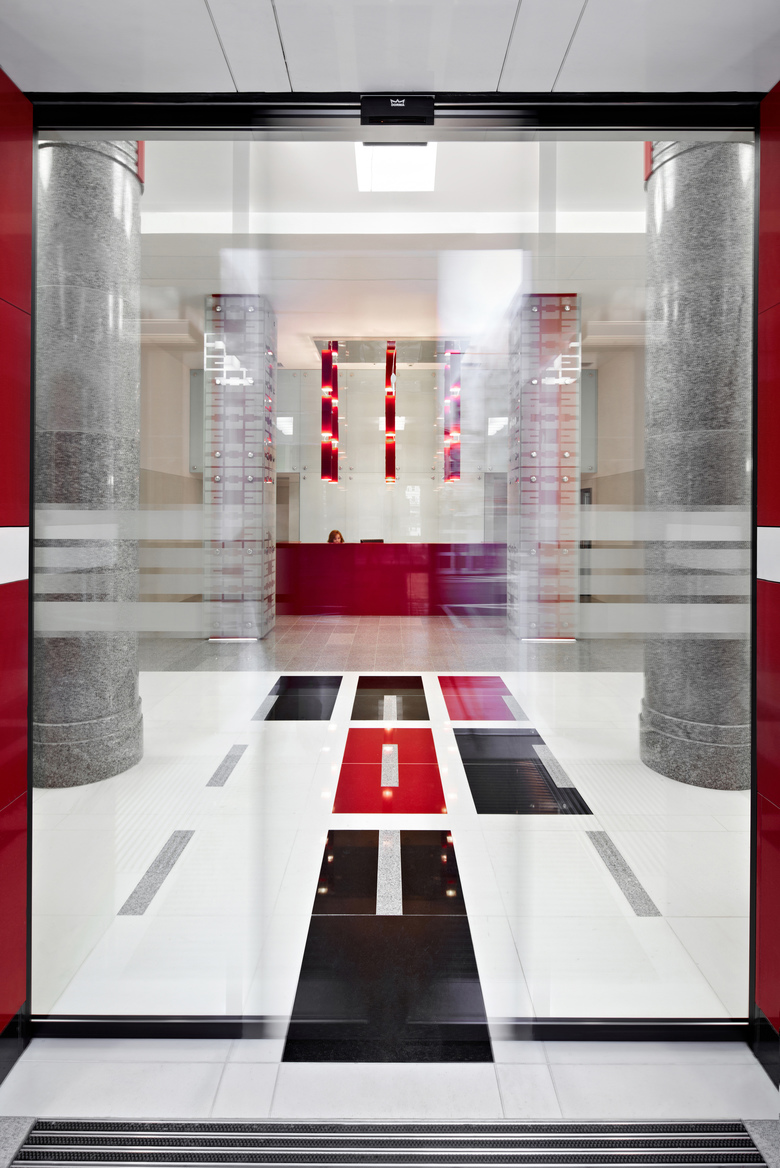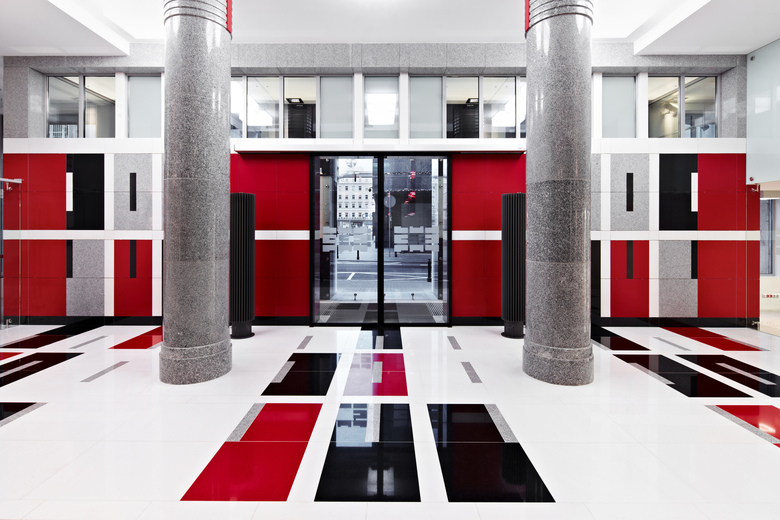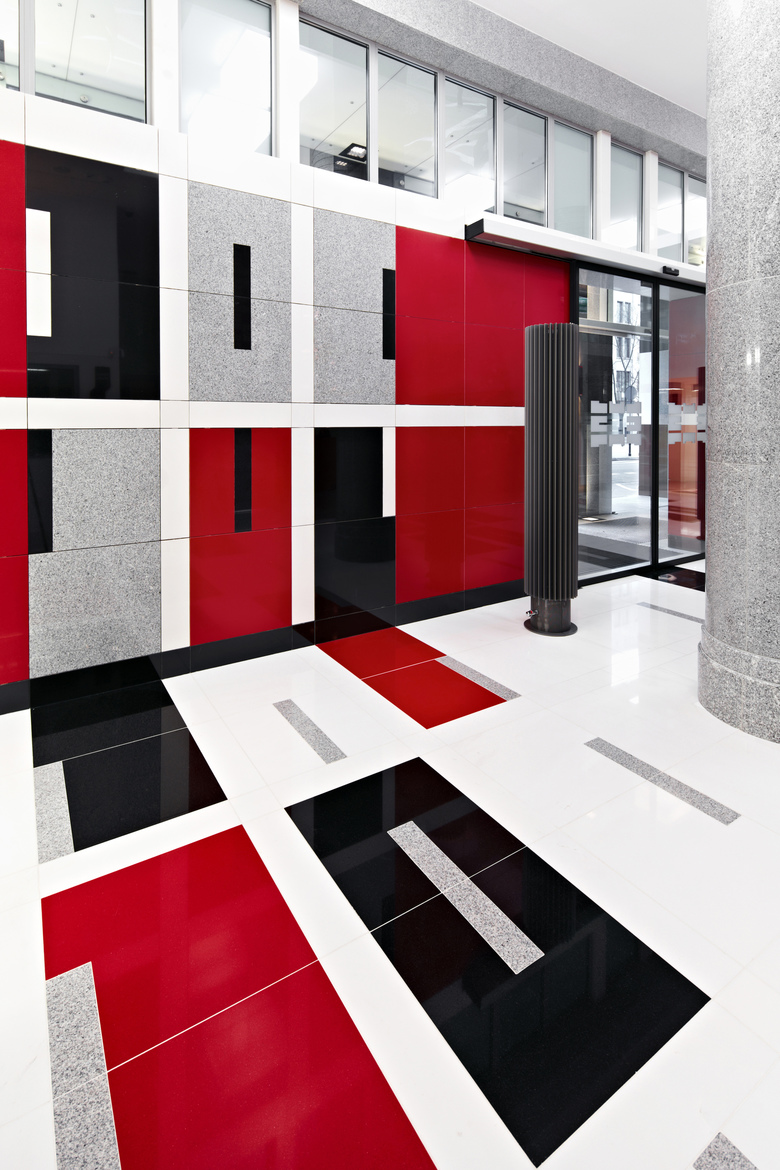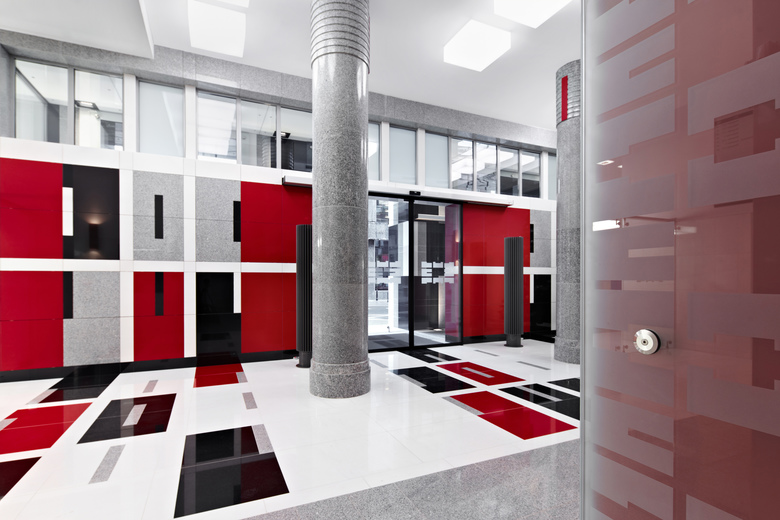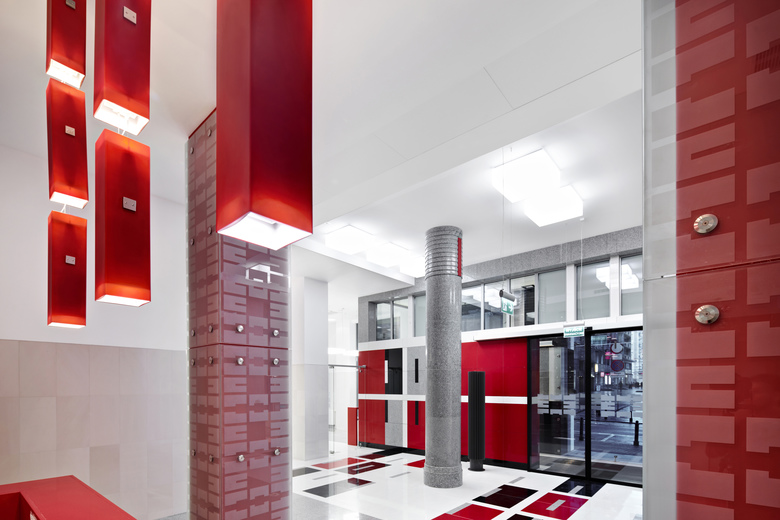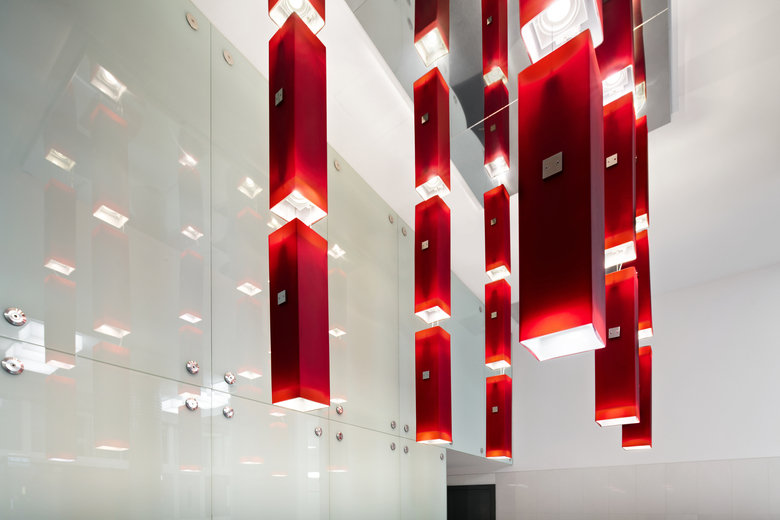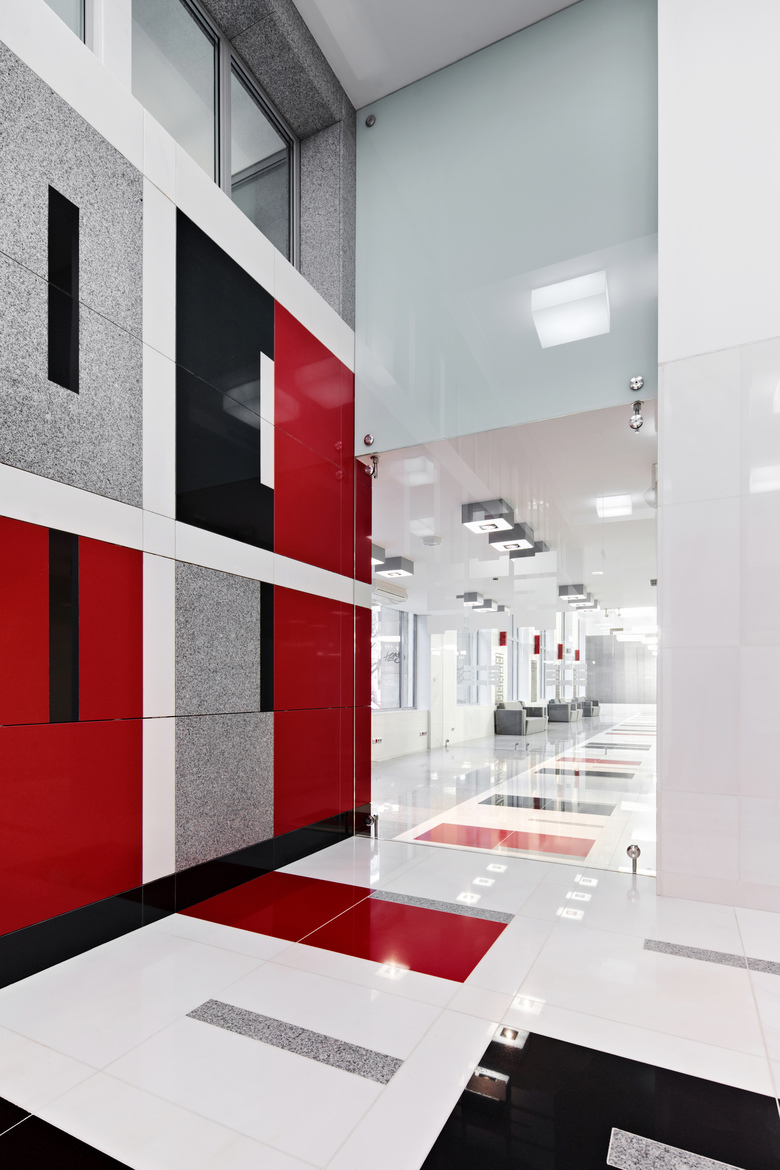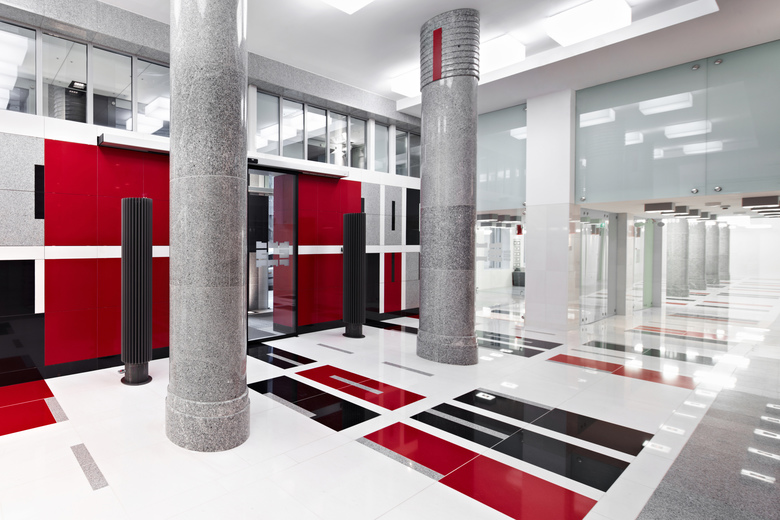Ministry of Labor and Social Policy Refurbishment
Warsaw
- Architekci
- FAAB Architektura
- Location
- 1/3/5 Nowogrodzka ul., Warsaw
- Year
- 2013
- Project Details
- Monumental Modernity
- Net area
- 1.357 m2/1,357 m2
- Volume
- 4.299 m3/4,299 m3
- Architects
- FAAB Architektura Adam Białobrzeski | Adam Figurski Adam Białobrzeski, Adam Figurski, Maria Messina
- Collaborators
- Weronika Libiszowska, Emilia Rusińska
- Structure
- Kappa-Projekt
- Sanitary
- Sinap
- Electrical
- Bema-projekt
- Cocntractor
- Instal-bud A.Onopiak
The design was determined by the pursuit of two main goals. One was the creation of a space which, thanks to the means of architectural expression, would bring out the gravity of the central government office as well as create an impression of the government’s openness and accessibility to citizens. The other was the durability of the project in terms of utilization and aesthetics, especially taking into account that the project was to be paid for with public funds.
From the point of view of the building’s utility, it was important to make the new building entrance easily navigable compared to the previous entrance and therefore reorganize the circulation of traffic at the ground level. Both these elements helped to achieve barrier free accessibility to the building.
The refurbished building is located in the center of Warsaw, the Polish capital, at the crossing of Bracka St and Nowogrodzka St, and is the site of the office of the Polish Minister of Labor and Social Policy. The building, constructed after WWII, replaced three destroyed tenement houses and was built with a reinforced-concrete frame. The remodeling of the basement, ground floor, mezzanine and part of the facade completed the rebuilding project.
The interpenetration of space plays the main role in accomplishing the impression of openness of the facility. The entrance hallway and arcade, thanks to the extensive use of glass and open internal circulation, blends smoothly into the foyer, which serves three conference rooms. The predominantly bright colors as well as intense coloristic accents, incorporated in most of the design elements, help to demystify the facility.
The design of the two-story hall, foyer and main conference rooms give the space its elegant character. This required the demolition of a large area of the existing ceilings in a building that could not be taken out of operation. The richness and consistency of the architectural detail, together with the elegance of the finishing materials, underscore the special nature of the space.
The finished floor is composed of three types of natural stone and bright red stone conglomerate. The clash of the predominant white with grey, black and red accents creates a unique pattern of detail. This detail dominates the interior. Besides the floor, it can be found in the entrance wall in a monochromatic version, lending character to the columns located at both sides of the reception desk. A three-dimensional version of this pattern, in laser-cut stainless steel plates, conceals niches for radiators.
Most of the interior columns repeat the existing round geometry. Their casings are made of curved natural stone, divided in half and rotated to mimic the rotation of the column caps. The supporting columns were strengthened with carefully designed reinforced concrete clamps.
The interior was enriched with custom-designed lighting fixtures and a light installation which accentuates the axis of the main entrance and reception area. The light installation is built of red varnished glass referring to the geometry of the interior’s main detail. Wall lamps, placed in the public spaces and conference rooms, create a delicate rhythm and mute the dominant colors of the walls.
As mentioned above, one of the design goals was to carry out a project which, in the age of advanced material engineering used to lower the durability of various products, would, without major renovation, exceed the standard utilization time limit for buildings. The materials used are durable and, most of all, easy to restore during the life of the building. Simple geometry bears a timeless character that will be valued for years to come. The entrance area is intended to be the initial refurbishment to the modernization of the building facade, which at the moment does not meet the current building criteria for thermal insulation. – FAAB Architektura, May 2014
Related Projects
Magazine
-
Reusing the Olympic Roof
2 days ago
-
The Boulevards of Los Angeles
3 days ago
-
Vessel to Reopen with Safety Netting
3 days ago
-
Swimming Sustainably
3 days ago
